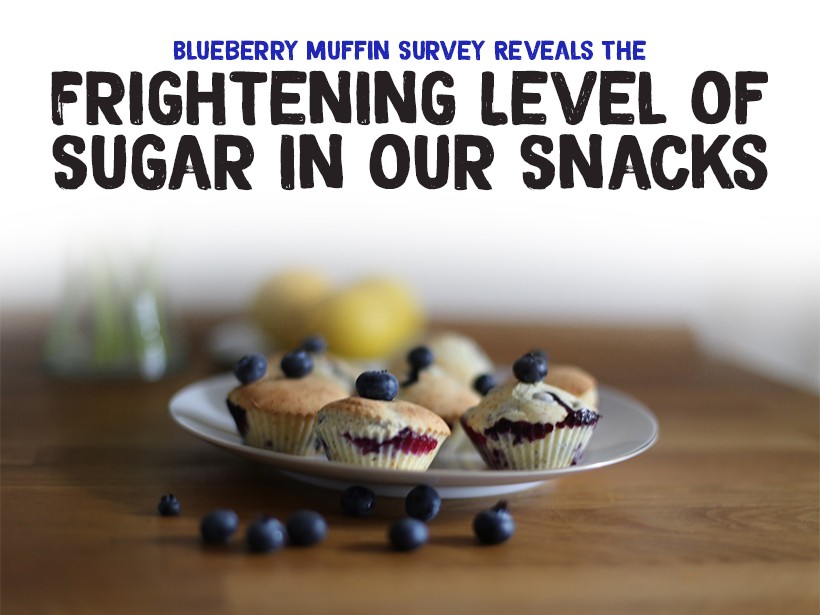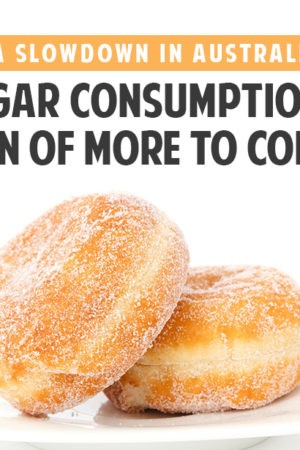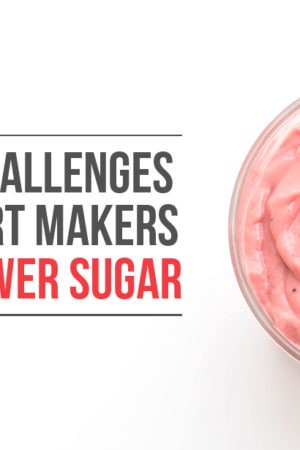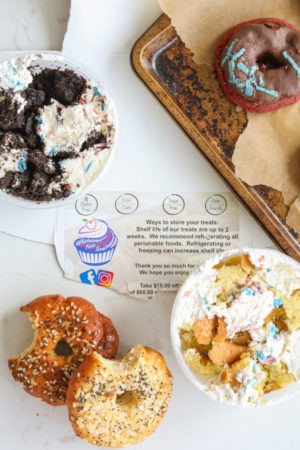Faced with the wide variety of pastries sold at morning coffee shops, bakeries, and Dunkin Donuts, many people turn to muffins as a safe and relatively healthy breakfast. A new study, however, targets the variety of blueberry muffins sold in shops, train stations, supermarkets, and international chains in Britain.1 The report, conducted by researchers at the organization Action on Sugar and Obesity Health Alliance, reveals just how inconspicuously packed with sugar these morning treats are. It also outlines the widespread public misperception about the nutritional quality of quick and easy breakfasts and snacks like these.
What's in a Muffin?
Researchers from the two organizations tested the sugar content found in muffins at train station coffee outlets and supermarkets in the UK, comparing their results with nutritional information found online for a variety of chains.2 While there are striking variations in sugar content across the board, the results show that even the muffins with relatively less sugar still make up a huge part of the daily recommended amount of sugar intake. And on the other end of that spectrum, the study reveals, many of the blueberry muffins match or exceed that amount.
The American Heart Association recommends 25 grams (6 teaspoons) of added sugar a day for women, and 38 grams (9 teaspoons) for men.3 A single blueberry muffin from McDonald’s had 32 grams of sugar. From Starbucks? 26 grams. And while supermarket muffins were generally somewhat healthier, the smallest, least sugary muffins in the survey still had almost 14 grams of sugar, or half the daily recommended amount for women.4
More than Muffins
The researchers suggest that this is symptomatic of larger problems of public awareness and the responsibility of the food industry. “We may think grabbing a blueberry muffin is a reasonably healthy option for a snack on the go compared to other cakes or a chocolate bar—yet the statistics suggest otherwise,” said Carline Cerny at the Obesity Health Alliance. “The industry must step up to the plate and take responsibility for making the food they produce healthier.”5
As Cerny suggests, muffins are the tip of the iceberg. The real issue at hand is the idea that easy and convenient high-carb foods, ubiquitous in our lives, do not have a significant impact on our health. The researchers recommend a “traffic light” labeling system on products like these to immediately call people’s attention to high quantities of sugar. Such a system would hopefully not only force the food industry to make products with less sugar but help to ween people off such snacks altogether.
NUTRITIONAL DISCLAIMER
The content on this website should not be taken as medical advice and you should ALWAYS consult with your doctor before starting any diet or exercise program. We provide nutritional data for our recipes as a courtesy to our readers. We use Total Keto Diet app software to calculate the nutrition and we remove fiber and sugar alcohols, like erythritol, from the total carbohydrate count to get to the net carb count, as they do not affect your blood glucose levels. You should independently calculate nutritional information on your own and not rely on our data. The website or content herein is not intended to cure, prevent, diagnose or treat any disease. This website shall not be liable for adverse reactions or any other outcome resulting from the use of recipes or recommendations on the Website or actions you take as a result. Any action you take is strictly at your own risk.
- California Pushes for Cigarette-Like Warning Labels on Soda - July 1, 2019
- Is a Slowdown in Australia's Sugar Consumption a Sign of More to Come? - June 24, 2019
- Groundbreaking Study Says the Sugar Rush Doesn't Exist - June 12, 2019
































Comments (1)
I made this yesterday and it was DELISH and TASTY!